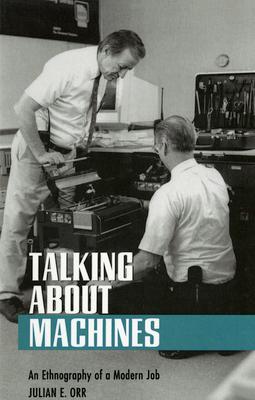This is a story of how work gets done. It is also a study of how field service technicians talk about their work and how that talk is instrumental in their success. In his innovative ethnography, Julian E. Orr studies the people who repair photocopiers and shares vignettes from their daily lives. He characterizes their work as a continuous highly skilled improvisation within a triangular relationship of technician, customer, and machine. The work technicians do encompasses elements not contained in the official definition of the job yet vital to its success. Orr's analysis of the way repair people talk about their work reveals that talk is, in fact, a crucial dimension of their practice. Diagnosis happens through a narrative process, the creation of a coherent description of the troubled machine. The descriptions become the basis for technicians' discourse about their experience, and the circulation of stories among the technicians is the principal means by which they stay informed of the developing subtleties of machine behavior. Orr demonstrates that technical knowledge is a socially distributed resource stored and diffused primarily through an oral culture.Based on participant observation with copier repair technicians in the field and strengthened by Orr's own years as a technician, this book explodes numerous myths about technicians and suggests how technical work differs from other kinds of employment.

Talking about Machines: The Emergence of an Independent Women's Movement in America, 1848-1869
This is a story of how work gets done. It is also a study of how field service technicians talk about their work and how that talk is instrumental in their success. In his innovative ethnography, Julian E. Orr studies the people who repair photocopiers and shares vignettes from their daily lives. He characterizes their work as a continuous highly skilled improvisation within a triangular relationship of technician, customer, and machine. The work technicians do encompasses elements not contained in the official definition of the job yet vital to its success. Orr's analysis of the way repair people talk about their work reveals that talk is, in fact, a crucial dimension of their practice. Diagnosis happens through a narrative process, the creation of a coherent description of the troubled machine. The descriptions become the basis for technicians' discourse about their experience, and the circulation of stories among the technicians is the principal means by which they stay informed of the developing subtleties of machine behavior. Orr demonstrates that technical knowledge is a socially distributed resource stored and diffused primarily through an oral culture.Based on participant observation with copier repair technicians in the field and strengthened by Orr's own years as a technician, this book explodes numerous myths about technicians and suggests how technical work differs from other kinds of employment.